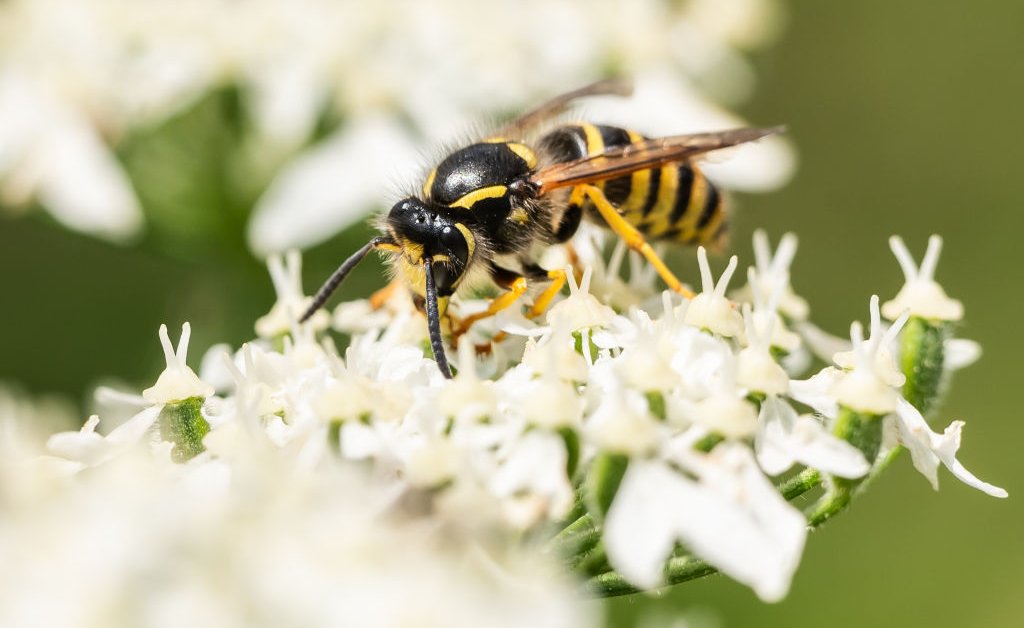Climate Change: A Summertime Bug's Perspective

Welcome to your ultimate source for breaking news, trending updates, and in-depth stories from around the world. Whether it's politics, technology, entertainment, sports, or lifestyle, we bring you real-time updates that keep you informed and ahead of the curve.
Our team works tirelessly to ensure you never miss a moment. From the latest developments in global events to the most talked-about topics on social media, our news platform is designed to deliver accurate and timely information, all in one place.
Stay in the know and join thousands of readers who trust us for reliable, up-to-date content. Explore our expertly curated articles and dive deeper into the stories that matter to you. Visit Best Website now and be part of the conversation. Don't miss out on the headlines that shape our world!
Table of Contents
Climate Change: A Summertime Bug's Perspective
The relentless summer sun beats down, turning the once-lush meadow into a parched wasteland. For humans, it's a scorcher. But for the insects buzzing, crawling, and flitting through what remains of their habitat, it's a fight for survival – a fight amplified by climate change. This summer, let's consider the insect perspective on our warming world.
Climate change isn't just melting glaciers and raising sea levels; it's subtly, yet devastatingly, impacting the intricate web of life, with insects bearing the brunt of many changes. These tiny creatures, often overlooked, play crucial roles in our ecosystems – from pollination to pest control. Their struggles are a stark warning sign of a planet in distress.
<h3>The Heat is On: Impacts of Rising Temperatures</h3>
Rising temperatures directly threaten insect survival. Many insects are ectothermic, meaning their body temperature is regulated by their environment. Extreme heat can lead to:
- Increased mortality: Prolonged exposure to high temperatures can simply kill insects outright.
- Altered development: Heat stress can disrupt insect life cycles, impacting growth rates, reproduction, and overall fitness.
- Range shifts: As temperatures rise, many insect species are forced to migrate to higher altitudes or latitudes in search of cooler climates. This can disrupt established ecosystems and lead to competition for resources.
- Mismatched phenology: The timing of life cycle events (like emergence from pupae or migration) is becoming increasingly mismatched with the availability of food and other resources, leading to population declines.
A recent study published in Nature Climate Change [link to study if available] highlighted the alarming rate at which insect populations are declining globally, linking this directly to habitat loss and climate change. This decline has far-reaching consequences for the entire ecosystem.
<h3>Beyond Heat: Other Climate Change Impacts on Insects</h3>
The effects of climate change extend beyond simply rising temperatures. Changes in precipitation patterns are also significant:
- Droughts: Droughts reduce the availability of water and food for insects, leading to starvation and dehydration.
- Increased rainfall and flooding: Excessive rainfall can drown insects and destroy their habitats. Flooding also leads to the spread of diseases.
Furthermore, increased frequency and intensity of extreme weather events like wildfires and storms directly destroy insect habitats and populations. The cumulative effects of these factors are pushing many insect species towards extinction.
<h3>The Ripple Effect: Consequences for the Ecosystem</h3>
The decline of insect populations has far-reaching consequences. Insects are crucial for:
- Pollination: Many plant species rely on insect pollination for reproduction. The decline of pollinators directly threatens food security and biodiversity.
- Nutrient cycling: Insects play a vital role in breaking down organic matter and recycling nutrients in the soil.
- Pest control: Many insects are natural predators of agricultural pests, reducing the need for harmful pesticides.
The loss of these ecosystem services would have devastating consequences for human society and the planet as a whole.
<h3>What Can We Do?</h3>
Addressing climate change is crucial to protecting insect populations. Individual actions, combined with larger-scale policy changes, are essential. This includes:
- Reducing your carbon footprint: Making sustainable choices in transportation, energy consumption, and diet can help mitigate climate change.
- Supporting conservation efforts: Protecting and restoring insect habitats is crucial for their survival.
- Advocating for climate action: Urging policymakers to implement policies that address climate change is vital.
The future of insects, and indeed the planet, depends on our collective action. This summer, let's not just feel the heat; let's understand the urgency of protecting these tiny creatures and their crucial role in our world. Let's work together to ensure a future where both insects and humans can thrive.

Thank you for visiting our website, your trusted source for the latest updates and in-depth coverage on Climate Change: A Summertime Bug's Perspective. We're committed to keeping you informed with timely and accurate information to meet your curiosity and needs.
If you have any questions, suggestions, or feedback, we'd love to hear from you. Your insights are valuable to us and help us improve to serve you better. Feel free to reach out through our contact page.
Don't forget to bookmark our website and check back regularly for the latest headlines and trending topics. See you next time, and thank you for being part of our growing community!
Featured Posts
-
 Henrique Rocha Faz Historia Vitoria Impactante Em Sua Primeira Participacao Em Roland Garros
May 29, 2025
Henrique Rocha Faz Historia Vitoria Impactante Em Sua Primeira Participacao Em Roland Garros
May 29, 2025 -
 The Persistent Threat Of Car Ramming Attacks Challenges And Potential Solutions
May 29, 2025
The Persistent Threat Of Car Ramming Attacks Challenges And Potential Solutions
May 29, 2025 -
 Transfer News Arsenals Offer For Gyokeres Sporting Cps Reaction
May 29, 2025
Transfer News Arsenals Offer For Gyokeres Sporting Cps Reaction
May 29, 2025 -
 Wnbas Cameron Brink Suffers Knee Injury Setback With The Los Angeles Sparks
May 29, 2025
Wnbas Cameron Brink Suffers Knee Injury Setback With The Los Angeles Sparks
May 29, 2025 -
 State Tennis Champs Lower Morelands Senior Twin Duo Triumphs
May 29, 2025
State Tennis Champs Lower Morelands Senior Twin Duo Triumphs
May 29, 2025
